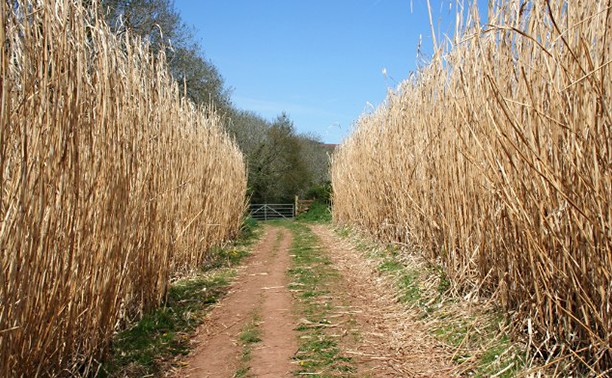
Tony Atkin [CC BY-SA 2.0 (http://creativecommons.org/licenses/by-sa/2.0)], via Wikimedia Commons
Grass for Sustainable Growth
by Tim Willmott : Comments Off on Grass for Sustainable Growth
On March 11, 2015, the official kick-off of innovation project ‘Grass for Sustainable Growth’ will be held in Johannesburg, South Africa. The INGCA consortium – comprising the Dutch company Dutch aWEARness and the South African companies EKCON and AlternaFruit – is planting 1500 hectares of Miscanthus (elephant grass) in South Africa’s Eastern Cape. The harvest is processed into recyclable textiles, biofuels, plastics and building materials. The project fits within the “Black Economic Empowerment” initiative of the South African government and is supported by the Dutch Ministry of Economic Affairs. INGCA provides additional employment and good working conditions for the local farmers. The profits are entirely reinvested in the region.
The Miscanthus grass was developed by the University of Wageningen. This grass contains a high amount of cellulose, which can be used to create viscose rayon – a sustainable alternative to natural materials for textiles. After use, it can be converted back to cellulose. As a result, the grass is very suitable for the production of textile fibers, among other applications. Dutch aWEARness, an expert in circular materials, is the initiator of the project. The objective of ‘Grass for Sustainable Growth’ is to cultivate a material that is suitable for many applications within the circular economy.
Dutch aWEARness will enter into a long-term economic relationship with South Africa. This objective is supported by the Dutch government that wants to set up a local circular chain together with INGCA. Prior to the kick-off, the consortium visits various South African governments, ministers and investment funds, the king of KwaZulu Natal (the region where the project takes place), Nyonyama Trust (the representative of the country where the grass is planted) and South African producers for the various applications. Dr. Precious Mioloy-Motsepe, chairman of African Fashion International, will be invited to become the ambassador of the project.



Comments are closed